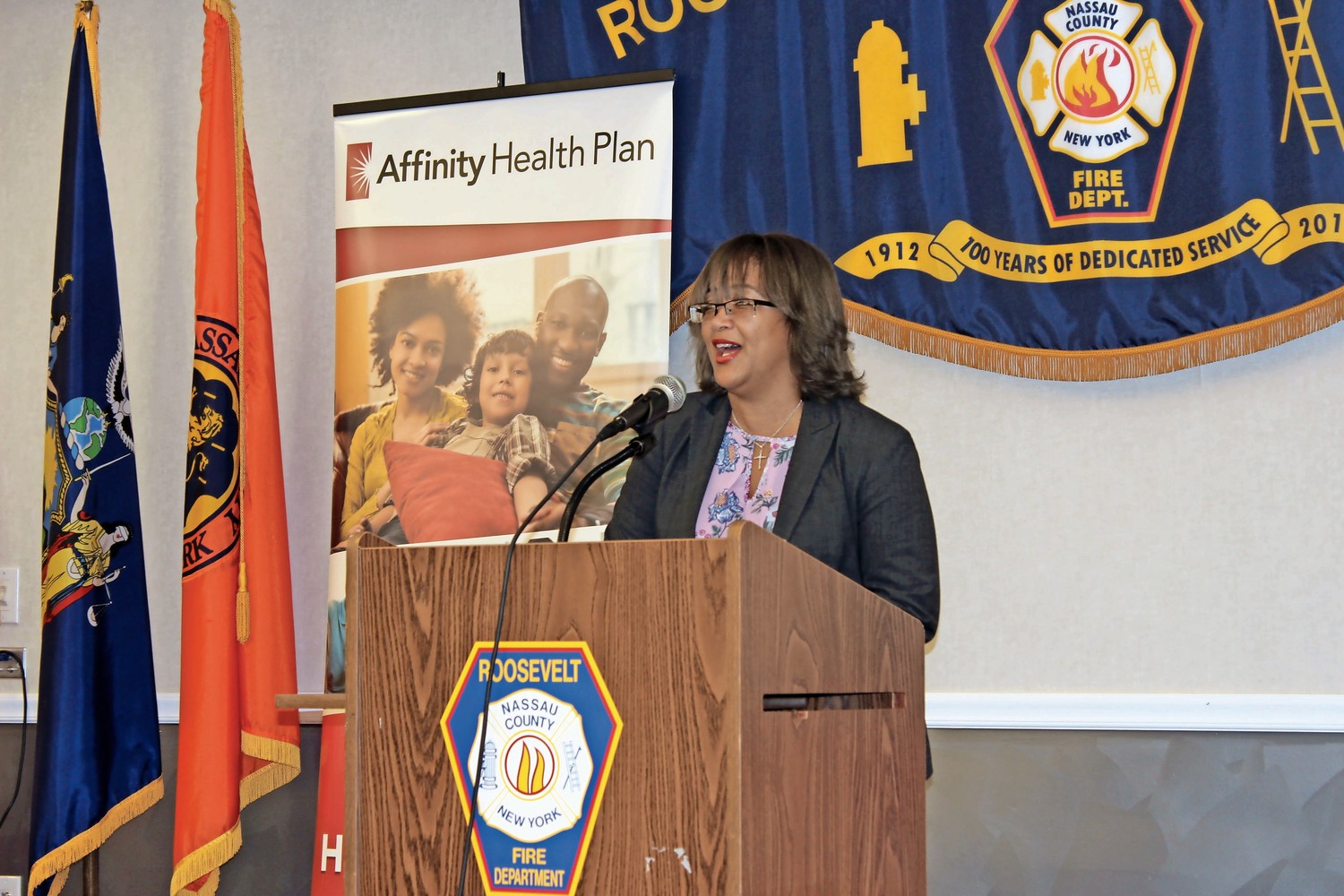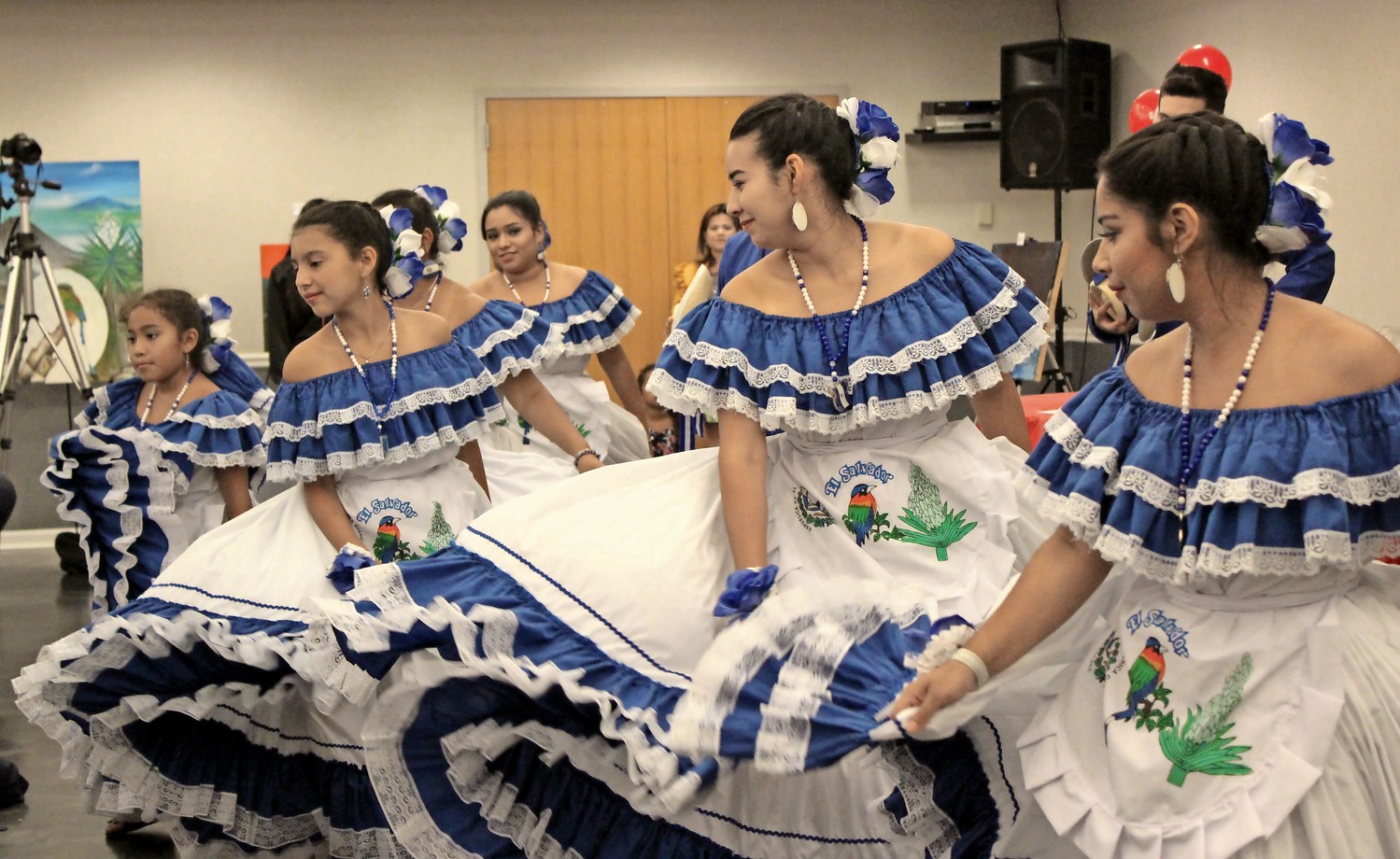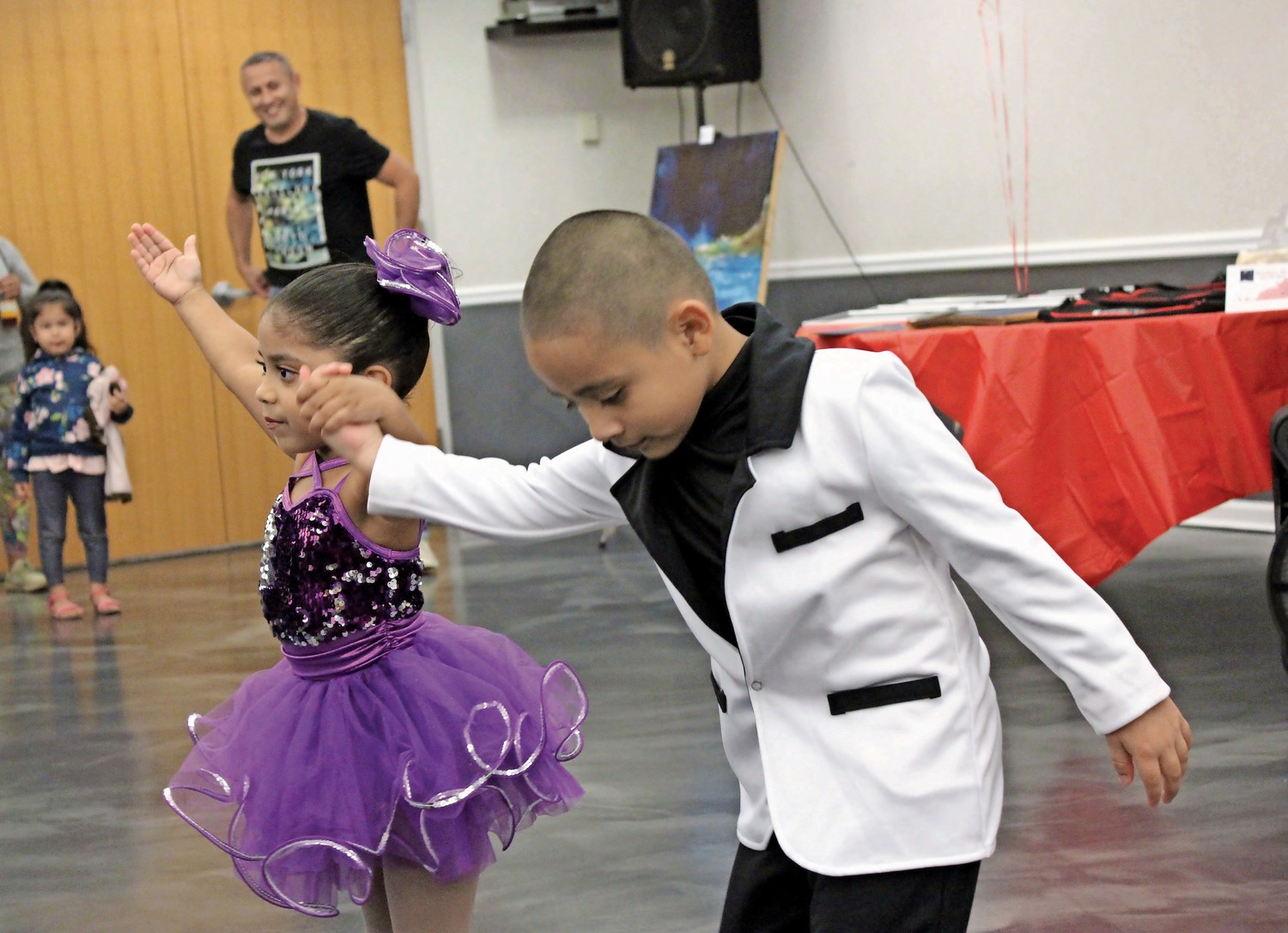Honoring the many faces of the Latino community
“We Latinos, we are a nation without a face,” said Carmen Piñeyro, a trustee on the Freeport Village board, as she opened her speech as keynote speaker of a Hispanic Heritage Month celebration on Sept. 21 at the Roosevelt Fire Department.
Piñeyro explained that many members of the Latino community could trace their lineage to more than one Hispanic country — in part because of the nomadic nature of some native Latino tribes, the colonization of Latin America and the impact of the Trans-Atlantic Slave Trade.
In addition to Piñeyro’s speech, the celebration, hosted by Legislator Kevan Abrams (D, D-1) and Affinity Health Plan, showcased dance groups Danza Ritmo Sabor Salvadoreno and Alianza Latina, offered guests a taste of Hispanic food from Hempstead’s Pollo Campero and honored several members of the local Latino community and their contributions.
Piñeyro continued to say that, despite the impact such changes had on the Latino community, they have always remained strong and made their mark on American culture. “Our history has been engrained in American culture for such a long time,” she said and referenced the settlement of St. Augustine, FL., by the Spanish in 1565 — decades before the English landed in Jamestown, VA.
When Piñeyro first came to America, she said, “My community of Freeport embraced me and taught me to stand up for myself.” She urged the audience to share such support with each other amid such tumultuous political times and strife involving immigration protections. “At the end of the day, we’re all humans,” she said.
The event’s honorees included teachers, civic leaders and philanthropists. One of who was Beverly Torres, who works as a therapist at the South Shore Child Guidance Center in Freeport and a social worker at Roosevelt Middle School.
In a speech thanking her community for the honor, Torres explained that she wouldn’t be where she is without her mother, who emigrated from El Salvador and raised Torres while tirelessly cleaning houses so that she could support her. Her mother stood up for the thank you, with tears forming in her eyes, and Torres said, “She constantly gives back and doesn’t even know it. It’s part of her.”
Torres wanted to earn the money to pay her mother back, but also directed her energy toward “helping other people of color escape the cycle of poverty.”











